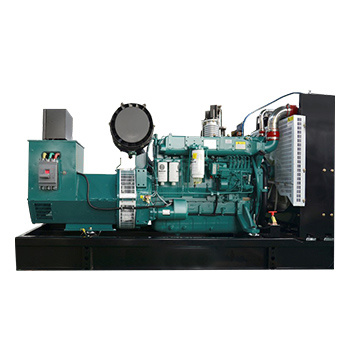Understanding Generator Sets: A Comprehensive Guide
Jun 04,2025
Generator sets, commonly known as gensets, are crucial components in the power generation sector. They consist of an engine, alternator, and various accessories designed to produce electrical energy. These sets are widely used in numerous applications, including commercial, industrial, and residential settings, where they provide backup power during outages or serve as primary power sources in rem

Generator sets, commonly known as gensets, are crucial components in the power generation sector. They consist of an engine, alternator, and various accessories designed to produce electrical energy. These sets are widely used in numerous applications, including commercial, industrial, and residential settings, where they provide backup power during outages or serve as primary power sources in remote locations.
At the heart of every generator set is the engine, which can be powered by various fuels, including diesel, natural gas, or gasoline. The engine converts mechanical energy into rotational energy, which is essential for the alternator's operation. The alternator, in turn, is responsible for converting this mechanical energy into electrical energy through electromagnetic induction—a process where the rotation of a magnetic field induces an electrical current in the windings of the alternator.
Generator sets are available in different sizes and power outputs, catering to a diverse range of needs. For instance, small portable generator sets are ideal for residential use and can power essential appliances during power outages. In contrast, larger, stationary generator sets are often employed in industrial applications, providing reliable power for manufacturing operations, data centers, and hospitals.
One critical aspect of generator sets is their capability to operate in parallel with the electrical grid. This feature allows them to support the grid during peak demand periods or when there are supply interruptions. Furthermore, modern generator sets are equipped with advanced control systems that enhance their efficiency and reliability. These control systems monitor various parameters, such as voltage, frequency, and load, ensuring optimal performance and reducing the risk of damage due to overload conditions.
Maintenance is another vital consideration when operating generator sets. Regular servicing, including oil changes, filter replacements, and coolant checks, is essential to ensure long-term reliability. Monitoring the performance of the generator set can help identify potential issues before they lead to operational failures, thus minimizing downtime and repair costs.
In summary, generator sets play a crucial role in providing reliable power solutions across different sectors. Understanding their operation, components, and maintenance requirements is essential for maximizing their performance and ensuring a steady supply of electricity when needed most. Whether for emergency backup or primary power generation, generator sets are indispensable tools in our increasingly electrified world.
At the heart of every generator set is the engine, which can be powered by various fuels, including diesel, natural gas, or gasoline. The engine converts mechanical energy into rotational energy, which is essential for the alternator's operation. The alternator, in turn, is responsible for converting this mechanical energy into electrical energy through electromagnetic induction—a process where the rotation of a magnetic field induces an electrical current in the windings of the alternator.
Generator sets are available in different sizes and power outputs, catering to a diverse range of needs. For instance, small portable generator sets are ideal for residential use and can power essential appliances during power outages. In contrast, larger, stationary generator sets are often employed in industrial applications, providing reliable power for manufacturing operations, data centers, and hospitals.
One critical aspect of generator sets is their capability to operate in parallel with the electrical grid. This feature allows them to support the grid during peak demand periods or when there are supply interruptions. Furthermore, modern generator sets are equipped with advanced control systems that enhance their efficiency and reliability. These control systems monitor various parameters, such as voltage, frequency, and load, ensuring optimal performance and reducing the risk of damage due to overload conditions.
Maintenance is another vital consideration when operating generator sets. Regular servicing, including oil changes, filter replacements, and coolant checks, is essential to ensure long-term reliability. Monitoring the performance of the generator set can help identify potential issues before they lead to operational failures, thus minimizing downtime and repair costs.
In summary, generator sets play a crucial role in providing reliable power solutions across different sectors. Understanding their operation, components, and maintenance requirements is essential for maximizing their performance and ensuring a steady supply of electricity when needed most. Whether for emergency backup or primary power generation, generator sets are indispensable tools in our increasingly electrified world.





